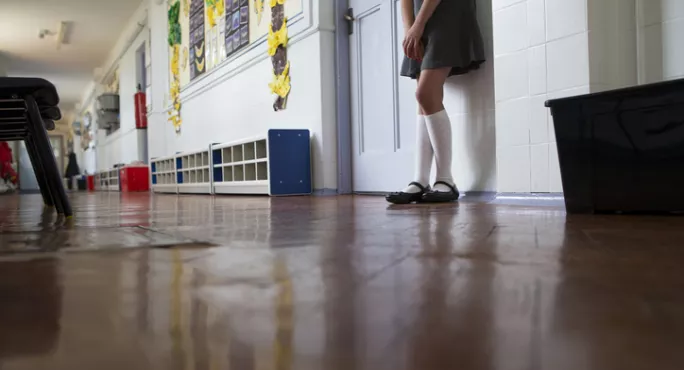
- Home
- The simple three Cs approach to managing behaviour
The simple three Cs approach to managing behaviour

I’m reading and hearing more and more about schools that aren’t able to manage poor behaviour, and it worries me.
I’m also very concerned about the plethora of theories being put forward by so-called behaviour experts, many of whom have little or no experience of teaching in state education.
I have spent 29 years leading one of the country’s largest multicultural, inner-city, mixed 11-16 comprehensive schools, with just under 2,000 pupils on roll, 60 per cent of whom receive pupil premium funding.
Quick read: Why off-the-shelf behaviour policies don’t work
Quick listen: Why consistency in behaviour rules can be harmful
Want to know more? Training teachers to ‘transform’ education
I’m not professing to know it all, but I have learned that a common-sense approach to behaviour pays dividends for everyone.
The facts are straightforward: poor pupil behaviour and its damaging, disruptive outcomes is the biggest single factor in underachievement both in primary and secondary schools.

A minority of students create much of that disruption, and many of them are just plain naughty. I have used that word deliberately.
Without a strong behaviour management system, the majority of students suffer a disrupted learning process because of the few. The students who suffer the most are those with learning difficulties and those from disadvantaged homes. This is totally unacceptable.
Bad behaviour without consequences just encourages more bad behaviour from the minority.
Fair but strong
In our school, with its fair but strong behaviour management system, everyone achieves more. For the past three years, our Progress 8 scores have been +0.45, +0.24 and +0.23.
Our system of the three Cs is well-known and easily understood: choices, chances and consequences. But in any school, it needs to be rigorously applied; there can be no deals or compromises. The most important factor is not how hard and punitive a system is, but how fairly and consistently it is implemented and monitored.
We rigorously monitor our system and everything is recorded meticulously to protect students and staff against unfair practice. However, once given, the punishment stands and no deals can be cut, no matter how much pupils and parents protest.
The system allows for weekly monitoring of:
- The top 10 students receiving behaviour sanctions.
- Classes with the most behaviour events issued.
- Behaviour “hot spots” - this could be a certain year group, period, subject or class that is experiencing behaviour issues.
When issues are identified, appropriate support is put in place. Pockets of poor behaviour will crop up from time to time, but the system is so rigorous and detailed that these can be quickly identified and responded to by the pastoral team, who may sit in on classes for a while, for example.
The pastoral team brings key reports to weekly meetings for discussion and to agree any required action.
The system works like this:
- C1 (warning): the student has the choice to stop misbehaving, but their name goes on the board.
- C2 (second warning): the student has made the wrong choice, their name is ticked.
- C3 (third warning): a one-hour detention is issued for 24 hours later, via a letter that is handed to students in form time the next day.
Students who fail to attend detention receive one day in isolation the following day (in our isolation unit, which is run by a retired pastoral deputy head). Students complete their isolation and are escorted to detention that night.
I have tried several systems over the years, and this is undoubtedly the best I’ve seen. Students and staff respect it, trust it and like it.
Its beauty lies in the fact that it is easily understood, transparent, fair and effective at focusing on those students who misbehave.
Students who are going through difficult patches are identified and given intensive support to get them through.
If that fails, they are given six weeks in our Compass Centre; an off-site provision based a mile away. Our staff undertake the teaching there, so the curriculum diet is maintained.
If they change their ways, they can be reintegrated after the six-week period. If they fail to behave then they continue at the centre.
If they still refuse to change their ways, they are sent to local education authority projects and, although they remain Wright Robinson students, they cannot return to school. This is not a mechanism for off-rolling.
It is very telling that we had the most first-choice applications for a place at our school from parents of Year 6 pupils in the whole of Manchester.
The reason most parents gave for their decision was the strong discipline of the college, which allows their children to be safe and happy, and to achieve their full potential academically.
Neville Beischer is headteacher of Wright Robinson College in Manchester
Register with Tes and you can read five free articles every month, plus you'll have access to our range of award-winning newsletters.
Keep reading for just £4.90 per month
You've reached your limit of free articles this month. Subscribe for £4.90 per month for three months and get:
- Unlimited access to all Tes magazine content
- Exclusive subscriber-only stories
- Award-winning email newsletters
You've reached your limit of free articles this month. Subscribe for £4.90 per month for three months and get:
- Unlimited access to all Tes magazine content
- Exclusive subscriber-only stories
- Award-winning email newsletters
